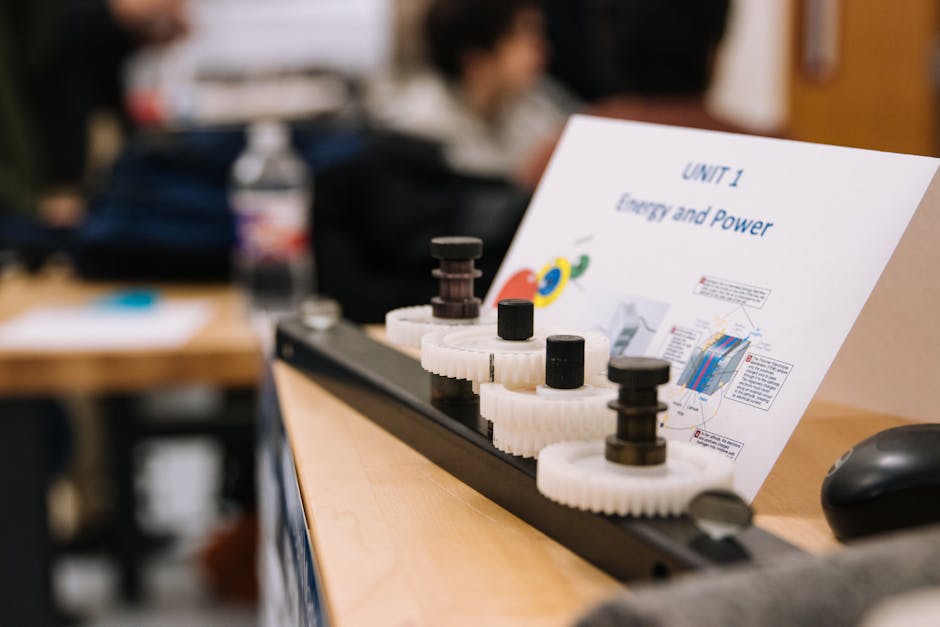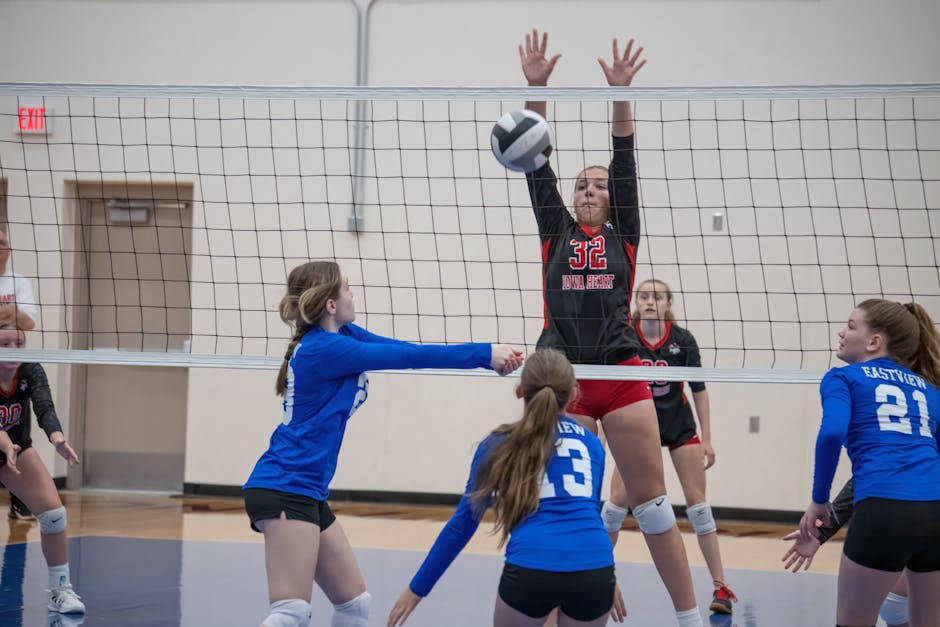From Academy to University: How Football Training Prepares Boys for Higher Education
When 18-year-old Marcus was released from a Premier League academy after eight years, his initial devastation quickly gave way to an unexpected realisation. As university began, he found himself thriving in ways his peers weren’t.
‘I was automatically managing my time better than flatmates who’d never had to balance intense commitments,’ he explains. ‘When others procrastinated on assignments, I had a systematic approach to work. When they struggled with professor feedback, I was used to performance criticism. The skills that made me an academy player were the exact same ones making me a successful student.’
Marcus’s experience reflects a pattern that educators and researchers increasingly recognise: the elite academy football environment develops capabilities that transfer directly to higher education success—sometimes giving former academy players an edge over peers who focussed exclusively on academics.
The Unexpected Academic Advantage

The traditional narrative often portrays serious sport commitment as a potential threat to educational attainment. Yet research and real-world outcomes tell a more nuanced story, particularly for academy players who develop:
- Exceptional time management skills
- Structured approaches to improvement
- Resilience when facing setbacks
- Ability to process and apply feedback
- Goal-setting and progression planning
Dr. Helen Thompson, who studies educational outcomes of youth athletes, notes: ‘Former academy players often arrive at university with a psychological toolkit many exclusively academic students haven’t developed. They’ve essentially been in a high-performance environment for years, just in a different domain.’
The Transferable Skills Advantage
| Academy Football Skill | University Application | Competitive Advantage |
|---|---|---|
| Time management under pressure | Balancing lectures, assignments, social life, part-time work | Less procrastination, better work-life balance |
| Breaking down improvement into components | Approaching complex academic material methodically | More effective study strategies, less overwhelm |
| Receiving direct performance feedback | Processing professor critiques constructively | Faster improvement through feedback integration |
| Competitive drive within supportive environment | Motivation in challenging academic situations | Resilience during difficult course material |
| Goal-setting and milestone tracking | Long-term academic project management | Strategic approach to degree progression |
James, a university admissions tutor, has observed this pattern: ‘We can often spot former elite youth athletes in personal statements and interviews. There’s a certain maturity in how they discuss challenges and learning that sets them apart. They tend to have a clearer sense of how to approach their education purposefully.’
Academic Qualification Pathways from Academies

Beyond transferable skills, modern academies increasingly provide structured educational qualifications that create direct university pathways.
Standard Academy Education Routes
-
BTEC Extended Diploma in Sport (Level 3)
- Equivalent to three A-Levels
- Provides up to 168 UCAS points (depending on grades)
- Accepted by most universities for sport-related degrees
-
Combination of BTECs and A-Levels
- Some academies partner with colleges to offer hybrid programmes
- Provides broader subject range for university options
-
Cambridge Technical qualifications
- Alternative to BTECs offered by some academies
- Similar UCAS point values for university entrance
‘People assume academy boys must be academically limited, but that’s an outdated stereotype,’ explains Alex, an education officer at a Championship club. ‘Under the EPPP, every scholar must pursue substantive education. Many of our boys achieve distinctions in BTEC Extended Diplomas, equivalent to three A* at A-Level in UCAS points.’
In fact, the structured study support in academies can benefit some learners who might otherwise struggle with independent study. The supervised study sessions, progress tracking, and accountability mirror effective educational support programmes.
University Subject Choices: Beyond Sports Science

While sports science remains a popular choice for former academy players, the range of degree subjects they pursue is increasingly diverse:
- Business and Management – Leadership and teamwork skills transfer well
- Psychology – Understanding of mental performance aspects
- Education/Teaching – Natural progression for those interested in coaching
- Engineering/Computer Science – Analytical thinking developed in tactical analysis
- Media/Communications – Experience with academy media training and presentation skills
‘I expected to study sports science if I didn’t get a pro contract,’ shares Theo, released at 18 and now studying mechanical engineering. ‘But my academy education officer encouraged me to think more broadly about my interests. The problem-solving mindset from analysing game situations actually transfers well to engineering challenges.’
Case Study: Jamal’s Journey
Jamal spent six years at a Premier League academy before being released at 16. While continuing to play semi-professionally, he:
- Completed a BTEC Extended Diploma with distinction (168 UCAS points)
- Applied to universities while playing part-time
- Received offers from five universities including two Russell Group institutions
- Graduated with First Class Honours in Business Management
- Now works in sports marketing while coaching youth football
‘The academy taught me about high standards and detailed preparation,’ Jamal reflects. ‘That mentality meant I approached university assignments with the same thoroughness I’d apply to analysing opposition before a match.’
Making University Applications Stand Out

Former academy players have unique experiences that can strengthen university applications when framed effectively:
Showcasing Transferable Skills in Personal Statements
Weak approach: ‘I played football at [Academy] for five years.’
Strong approach: ‘My five-year experience at [Academy] developed my ability to manage competing priorities, apply structured improvement processes, and thrive in high-performance environments—skills I’ll bring to my university studies.’
University admissions tutors report that personal statements highlighting specific transferable skills from sporting backgrounds typically make stronger impressions than general references to athletic achievement.
Interview Advantages
Academy players often perform strongly in university interviews due to:
- Experience communicating with adults in authority positions
- Comfort discussing personal performance and areas for improvement
- Ability to articulate goals and development plans clearly
- Poise under pressure situations
‘Former academy athletes often shine in interview settings,’ notes Dr. James Williams, who sits on admissions panels for a top UK university. ‘They typically make good eye contact, speak confidently, and respond to challenging questions with a maturity that stands out.’
The US University Option: Athletic Scholarships

For players released from UK academies, American universities present a compelling alternative pathway combining academic degrees with continued high-level football.
The NCAA and NAIA college systems offer over 1,000 men’s soccer programmes across different competitive divisions, many actively recruiting former UK academy players who:
- Have strong academic qualifications alongside football ability
- Possess the maturity to study abroad
- Can contribute immediately to university teams due to their training background
‘We typically have 5-6 boys each year who transition to US scholarships after academy release,’ reports one Championship academy education officer. ‘American coaches value the technical foundation and tactical understanding our academy players develop, while universities appreciate their academic preparation.’
Case Study: Ethan’s US Scholarship
After release from a League One academy at 17, Ethan:
- Worked with a scholarship placement service specialising in former academy players
- Created a highlight video and academic profile
- Received scholarship offers from eight US universities
- Accepted a 90% scholarship to an NCAA Division 1 programme
- Is now completing a Business degree while playing high-level university football
‘The academy experience made me much more prepared for the university environment,’ Ethan shares. ‘The independence, the structured schedule, the balance of sport and study—it’s basically an extension of academy life, just with more personal responsibility.’
Time Management: The Critical Transferable Skill

Of all the capabilities developed in academy environments, time management consistently emerges as the most valuable for university success.
‘The difference between my son and his university friends is stark,’ observes Karen, whose son spent seven years in an academy. ‘When assignments pile up, others panic while he methodically allocates his time and works through them. That skill alone has been worth the academy experience.’
Academy players typically develop sophisticated time management through necessity:
- Training 4-5 evenings weekly while maintaining schoolwork
- Travelling to matches while completing assignments
- Utilising ‘hidden time’ (car journeys, waiting periods) productively
- Creating weekly schedules that accommodate all commitments
- Prioritising tasks based on deadlines and importance
These habits become second nature and transfer directly to the university environment where self-directed time management is essential for success.
Building Academic Confidence Through Sport Confidence

Perhaps less obvious but equally significant is how sporting confidence builds academic self-belief. Academy players who’ve performed under pressure in sporting contexts often develop a general confidence in their ability to master challenges.
‘There’s a psychological transfer,’ explains sports psychologist Dr. Thomas Reed. ‘A young person who’s stood up to high-pressure sporting situations develops a core belief: ‘I can handle difficult challenges.’ That belief doesn’t stay confined to sport—it generalises to academic challenges too.’
This mental resilience means former academy players often approach difficult university work with less anxiety and more problem-solving focus than peers without similar experiences.
Making the Transition: Practical Steps

For players moving from academy to university, certain strategies can maximise the benefits of their sporting background:
1. Explicitly Identify Transferable Skills
Many academy players don’t recognise their transferable advantages until they’re struggling to articulate them.
Try this: Create a list of academy-developed capabilities and specific examples of each. This preparation helps with university applications and builds self-awareness.
2. Utilise Academy Education Support Early
Academy education officers can provide invaluable guidance about university options.
Try this: Schedule specific meetings to discuss higher education pathways, ideally beginning 2-3 years before potential university entry.
3. Consider Delayed Entry if Appropriate
Some players benefit from a gap year to transition from academy life and clarify academic interests.
Try this: Use the transition year purposefully—combine part-time football with work experience related to potential degree subjects.
4. Maintain Physical Activity Habits
The structured physical routine of academy life supports cognitive performance; maintaining activity during university preserves this benefit.
Try this: Join university sports teams or establish regular workout routines from the first week of term.
5. Apply Performance Analysis to Academic Work
The detailed analysis approach from football can enhance academic performance.
Try this: After each assignment or exam, conduct a ‘performance review’ identifying strengths, areas for improvement, and specific action steps—just as you would analyse a football performance.
University Support Networks

Universities increasingly recognise the transition challenges for former elite youth athletes and offer specialised support:
- Sports scholarship programmes – Even without full athletic scholarships, many UK universities offer partial sports scholarships with academic support components
- Elite athlete academic programmes – Special academic accommodation for students competing at high levels
- Athlete transition counselling – Psychological support specifically for former elite athletes
‘We’ve developed targeted programmes for former academy athletes,’ explains Natalie, a student support coordinator at a UK university. ‘We recognise they bring unique strengths but also face specific challenges in identity transition. The structured support helps them leverage their sporting background for academic success.’
For Parents: Supporting the Academy-to-University Transition

Parents play a crucial role in helping former academy players navigate the university pathway:
- Start the conversation early – Begin discussing post-academy education options while still in the system
- Highlight transferable skills – Help your son recognise and value the capabilities developed through football
- Research university options together – Explore courses that might aline with interests discovered through academy experiences
- Connect with former academy families – Learn from those who’ve successfully navigated this transition
- Maintain perspective – Remind your son that his identity and value extend beyond football
James, whose son transitioned from academy to university, shares: ‘We always discussed football as one chapter in his life story, not the entire book. That perspective made the university transition much smoother when academy release came.’
The Academy Advantage: A New Narrative

The stereotype that serious youth sport comes at the expense of education needs updating. For many academy players, the football journey—whether it leads to a professional contract or not—develops precisely the attributes that universities value and that drive academic success.
As Marcus, now in his final year of university, reflects: ‘The academy didn’t just teach me football—it taught me how to learn, how to improve, how to handle pressure, and how to bounce back from setbacks. My degree results owe as much to those years on the training pitch as they do to my time in the classroom.’
While not every academy player will become a professional footballer, the skills, mindset, and qualifications gained through the academy system can open doors to university success and, ultimately, careers where those same attributes continue to provide a competitive edge.
Are you navigating the transition from academy football to university? We’d luv to hear your experiences in the comments below, or get in touch with us directly to share your academy journey.
Contact us to discuss our services now!
